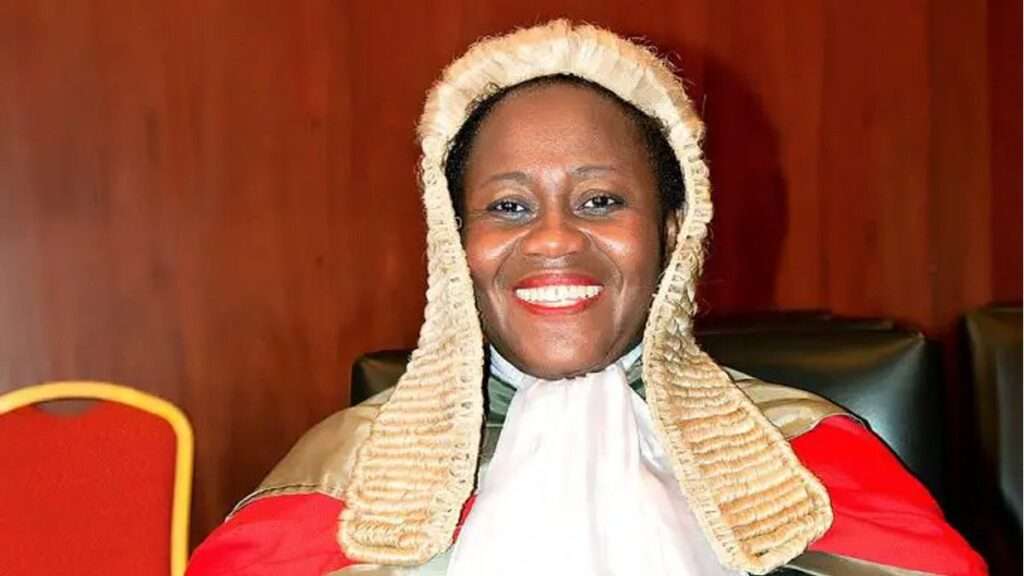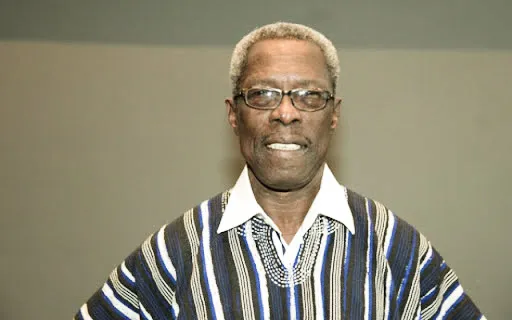A senior member of the National Democratic Congress (NDC) and former Ghanaian ambassador to the Netherlands, Dr. Tony Aidoo, expressed strong views against the Supreme Court’s involvement in parliamentary proceedings.
Dr. Aidoo argued that the Supreme Court’s ruling, in the context of certain parliamentary matters, should not be observed by Parliament.
He emphasized that the Speaker of Parliament was merely applying a constitutional provision that automatically comes into effect in such cases and that the Supreme Court had no authority to interfere.
“The speaker of parliament did not make a ruling or an order. Article 97 clause 1 and the sub-clauses operate automatically. They are akin to what in criminal law we may say you are guilty because the law says you are strict liability under criminal law.”
Dr. Tony Aidoo Senior member of the National Democratic Congress (NDC) and former Ghanaian ambassador to the Netherlands
Dr. Aidoo provided an example of strict liability in criminal law to illustrate his point, where guilt is established based solely on breaching a legal requirement, such as driving without a license, without the need to prove intent or a “guilty mind” (mens rea). He emphasized that the constitutional provision applied in Parliament operates similarly, where the Speaker’s action was guided by clear legal evidence that the provision had come into force.
No Role for the Supreme Court in Clear Provisions
“The Supreme Court has no duty nor power to interpret clear acts. There is no ambiguity in the operations of Article 97 and its sub-clauses. What the supreme court has done, therefore, is an assault on the constitution, not an assault on parliament, an assault on the constitution.”
“The Supreme Court cannot operate as a supplier of the constitutional court, with the power to interfere with parliamentary proceedings. What the speaker did was to apply the proceedings of parliament.”
Dr. Tony Aidoo Senior member of the National Democratic Congress (NDC) and former Ghanaian ambassador to the Netherlands
Compared with Legal Precedents

Dr. Aidoo acknowledged that legal scholars like Professor Kweku Asare had offered a different interpretation of Article 97, arguing that the provision could be seen as futuristic. Professor Asare suggested that a member of Parliament do not automatically lose their seat when switching parties or declaring themselves independent, but only when certain conditions are met.
Dr. Aidoo rejected this interpretation, recalling his time as a member of the Constitutional Assembly, which debated and drafted this provision. He noted that the provision originally only applied to MPs switching from one party to another, but was later amended to include independent candidates.
“The principle is that you came to parliament based on either a party ideology and ticket or a pledge to your constituents. And in good faith, you were voted into parliament. If you decide to break your bargain, you have kicked in article 97.”
Dr. Tony Aidoo Senior member of the National Democratic Congress (NDC) and former Ghanaian ambassador to the Netherlands
He argued that the intention of the provision was clear from the outset, and did not lend itself to interpretation. If Parliament allowed the Supreme Court to interpret this article, it would lead to absurdity, where the provision would lose its effect.
Justifying the Speaker’s Action
He emphasized that the Supreme Court had no grounds to intervene, as there was no legitimate dispute over the interpretation of the constitutional provision.
“The speaker doesn’t have to justify anything. So long as the provision is clear, unambiguous, he says a member of parliament must vacate his seat.”
Dr. Tony Aidoo Senior member of the National Democratic Congress (NDC) and former Ghanaian ambassador to the Netherlands
He elaborated that if the Court attempted to do so, it would have to refer to the Hansard—the official parliamentary record—where the intention of the framers of the provision would be evident.
“For the sake of argument, allow the Supreme Court the levity to interpret. What interpretation is it going to use? Purpose of interpretation as will be attempted by the supreme court must not be constructive, but must refer to the intention of the framers of the provision.”
Dr. Tony Aidoo Senior member of the National Democratic Congress (NDC) and former Ghanaian ambassador to the Netherlands
Finally, Dr. Tony Aidoo’s position was clear, the Supreme Court has no authority to interfere in Parliament’s application of constitutional provisions that are explicit and self-executing.
He views the Court’s involvement as an overreach and a threat to the principle of separation of powers. Dr. Aidoo’s argument is rooted in his understanding of the Constitution, his experience in the Constitutional Assembly, and his firm belief that Article 97 operates automatically, without the need for interpretation.
READ ALSO; Ofori Amponsah Reveals God-Given Gift of Prophecy





















